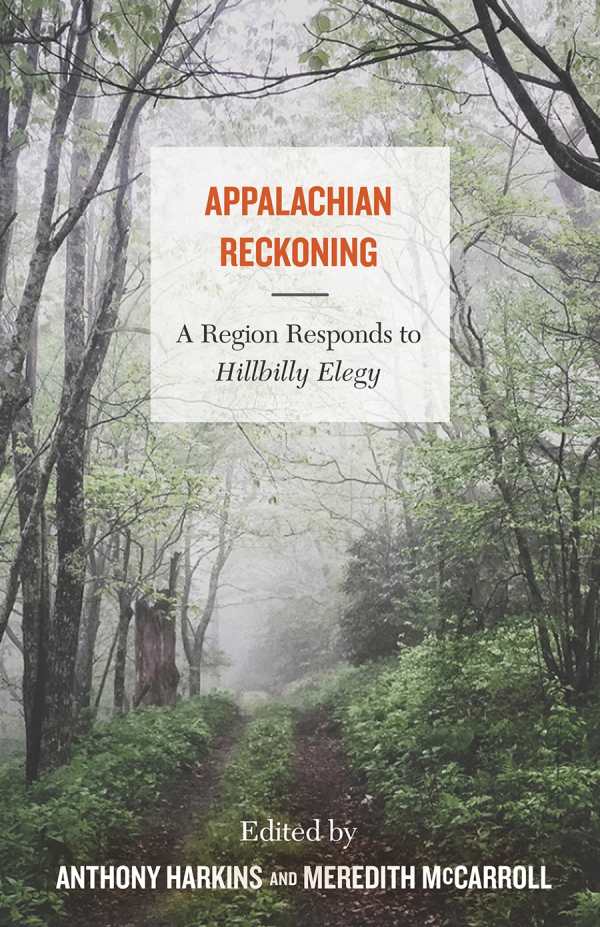Appalachian Reckoning
A Region Responds to Hillbilly Elegy
In 2016, J. D. Vance’s Hillbilly Elegy defined Appalachia for many, with Vance lionized as the region’s latter-day prophet. For Appalachians, the book has been much more troubling and complex. Appalachian Reckoning, edited by Anthony Harkins and Meredith McCarroll, critically situates Vance’s book and the reception thereof while redressing the current and historical complexity of Appalachian experience(s), which have always been plural rather than monolithic.
The contributors share Appalachian heritage, and their perspectives demonstrate the scope of Appalachian experiences and identity, covering a range of political persuasions, socioeconomic backgrounds, racial identities, and sexual orientations, among others. Their approaches are also multifaceted. Divided into direct commentary (mostly scholarly) and personal, artistic, and autobiographical reflections on Vance’s work, each contribution earnestly wrestles with Hillbilly Elegy‘s juggernaut, whether it’s from a perspective of dissent, appreciation, or reconciliation.
Stunning in its intellectual and creative riches, Appalachian Reckoning excels in holding the personal in tension with the political, the past with the present. In essay after essay, centuries-old popular stereotypes are unpacked, while poetry and photographs add alternate cultural visions.
William H. Turner honors the rich history of black Appalachian communities. Allen Johnson uses research on adverse childhood experiences as a rubric for understanding Vance’s perspective. Multiple contributors explore extractive business practices, the frayed social fabric, and the cumulative effect on individuals in the region, but concurrent stories about Appalachian adaptability, vitality, engagement, and success aren’t erased.
Appalachian Reckoning “attempts to speak for no one and to give voice to many,” even as it challenges the notion that any single book, including itself, could summarize Appalachia and what it means to be Appalachian. Rather than an elegy recounting what’s been left for dead, these voices’ melodious cacophony echo the demands and complexity of a living culture.
Reviewed by
Letitia Montgomery-Rodgers
Disclosure: This article is not an endorsement, but a review. The publisher of this book provided free copies of the book to have their book reviewed by a professional reviewer. No fee was paid by the publisher for this review. Foreword Reviews only recommends books that we love. Foreword Magazine, Inc. is disclosing this in accordance with the Federal Trade Commission’s 16 CFR, Part 255.

